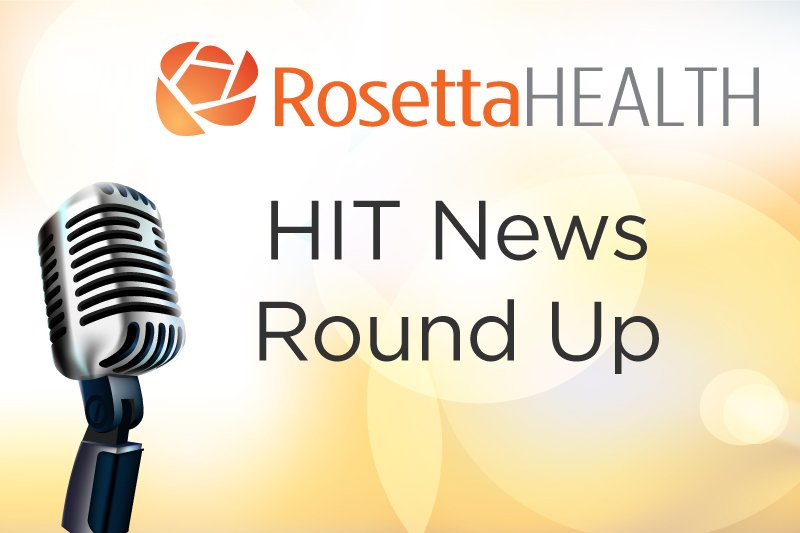HIT News Round Up: HL7 and WHO Partner; Patients Don’t Prefer AI; and EHR Data Guidelines Needed
Welcome to the Health Information Technology Weekly News Round Up from RosettaHealth. Each week, we will provide you with a summary of all the actionable news that hospitals, HIT vendors, ACOs, and population health providers need to be smart and effective when it comes to HIT and health information exchange.
HL7, WHO Partner to Drive Global Interoperability Standards Adoption
Standards-development organization Health Level Seven International (HL7) and The World Health Organization (WHO) have signed a Project Collaboration Agreement to support the global adoption of open interoperability standards.
Patients Report Acceptance of AI in Healthcare, But Don’t Prefer It
A new report joins the growing body of research suggesting that, while patients have generally bought into the use case and agree that AI would improve healthcare, they are reluctant to have their own provider utilize AI.
NC Works to Boost Broadband Access to Support Rural HIE Connectivity
Three business units within the North Carolina Department of Information Technology (NCDIT) are collaborating to improve health information exchange (HIE) connectivity for rural healthcare providers through increased broadband access.
EHR Data Quality Guidelines Needed to Drive Interoperability
Guidelines are needed for EHR data quality assessment (DQA) to improve the efficiency, transparency, comparability, and interoperability of data quality assessment, according to a study published in JAMIA.
Unlocking The Potential of AI-Powered Personalized Medicine for Small And Medium-Sized Businesses
AI-powered personalized medicine can empower small businesses to invest in the health and well-being of their workforce as well as reap the benefits of improved culture, increased productivity and reduced healthcare expenses, according to this recent Forbes article.
Why Digital Health Startups Should Embrace a Provider-Centric Approach, Per an AMA Exec
Providers often have a checklist of requirements they use to determine whether they should bring new technology into their organization. Digital health startups would be wise to learn about these criteria when taking their products to market, said AMA’s Meg Barron.
Video Shows Robots Taking Part in UN Session on AI in Healthcare
A video has surfaced online showing multiple robots taking part in a United Nations session examining how AI can be beneficial for healthcare. The session's panel examined how robot medical assistants, expressive robots for human communication and robot dogs that keep people safe can be used.
To learn more about how RosettaHealth can assist with any health information challenges you might have, book a free consultation with one of our interoperability experts.

